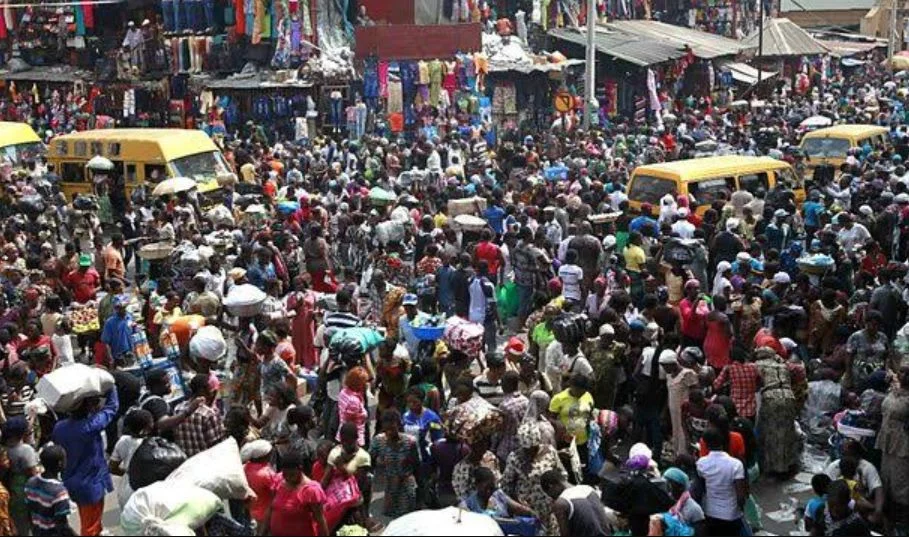Igbo land is a busy and successful area in Nigeria, famous for its people who like to start businesses and its active trade centers.
If you’re interested in learning about the economy of the region, you might be wondering: Which Igbo cities are doing the best economically right now?
In this guide, we’ll look closely at the most recent information to find the top 10 Igbo cities with the most active economies.
Plus, you will learn about well-established businesses, growing industries, and job opportunities, giving valuable information to anyone interested in Igbo land’s economic leaders.
READ ALSO: Top 10 Cleanest State In Nigeria You Should Know
Which City Is The Richest In Igbo Land?
Here are the top 10 cities with the highest economic activity In 2024:
| Rank | City | State |
|---|---|---|
| 1. | Onitsha | Anambra |
| 2. | Aba | Abia |
| 3. | Enugu | Enugu |
| 4. | Owerri | Imo |
| 5. | Awka | Anambra |
| 6. | Abakaliki | Ebonyi |
| 7. | Umuahia | Abia |
| 8. | Orlu | Imo |
| 9. | Okigwe | Imo |
| 10. | Nsukka | Enugu |
1. Onitsha
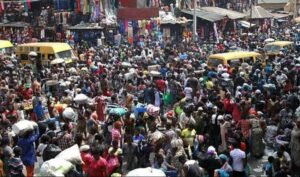
Onitsha, a city in Anambra State, is a powerhouse when it comes to the economy of Igbo land. For many years, it’s held the top spot as the most economically active city in the region.
However, there are two main reasons behind Onitsha’s economic success: a massive marketplace and a well-established manufacturing sector.
The Onitsha Main Market is famous throughout West Africa. It’s a huge marketplace filled with all sorts of goods, clothing, food, electronics, and much more.
This massive market attracts traders from all over the region, making it a bustling center of commerce. Aside from the market, Onitsha is also a major center for manufacturing.
The city has a long history of producing different goods, and today, it boasts a diverse range of industries, meaning there are many factories in Onitsha creating different products, which contributes significantly to the city’s economic activity.
Altogether, Onitsha’s massive market and established manufacturing sector make it the undisputed economic leader in Igbo land. It’s a city that’s constantly buzzing with trade and production.
2. Aba
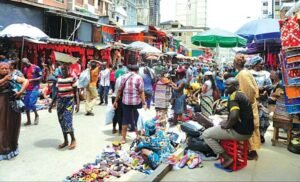
When It comes to manufacturing, Aba in Abia State is doing really well. This city has a long history of transforming raw materials into high-quality goods.
In fact, Aba is often called the “Made in Aba” center of Igbo land, just to underline its reputation for producing a wide range of items.
Aba is known for making a variety of things. At the top of the list are fashion items like clothes and shoes. Aba is a major producer of clothing for all occasions, from everyday wear to special event outfits.
The city is also renowned for its leather goods, such as bags, wallets, and belts. Aba’s skilled artisans use their talents to create beautiful and durable leather products that are popular throughout Nigeria.
Besides, the city also produces a range of other goods, including furniture, plastic products, and metalwork. No matter what you’re looking for, there’s a good chance you can find it made in Aba.
One of the most interesting things about Aba’s manufacturing sector is its local and energetic feel. Many of the businesses are family-run or small-scale enterprises.
A lot of hard work and dedication goes into every product that comes out of Aba. The city has a strong entrepreneurial spirit, and there’s always a new idea or innovation bubbling up.
So, how does all this manufacturing activity contribute to Aba’s economy? Imagine a bakery. The bakery takes flour, sugar, and other ingredients (raw materials) and turns them into delicious bread (manufactured goods).
Then, the bakery sells the bread to customers, which brings in money. In the same way, Aba’s factories use raw materials to create finished products.
These products are sold in markets across Nigeria and even exported to other countries. This selling of goods creates jobs for people in Aba and brings income into the city, which helps the economy grow and thrive.
3. Enugu
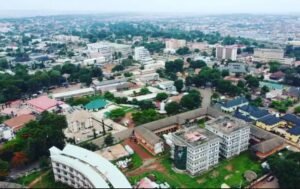
Enugu is no stranger to history and culture. But this vibrant city is also experiencing a surge of economic revitalization, making it an exciting place to watch. Several factors are fueling Enugu’s economic comeback.
Firstly, Enugu is undergoing a major infrastructure development push. You can tell there are improvements to roads, transportation systems, and other essential facilities.
This makes it easier for businesses to operate and for people to travel to and from Enugu, which is good for the economy.
For instance, the construction of a brand new international airport will improve connections with other regions and countries which will make Enugu more attractive to businesses.
Secondly, the business scene in Enugu is blossoming. New companies are setting up shop, and there’s a growing buzz of investment. This means more job opportunities for people in Enugu and a wider range of goods and services available.
Enugu is also becoming a hub for tech startups, with co-working spaces and innovation centers popping up all over the city.
These centers provide resources and support for young entrepreneurs with bright ideas, promoting a spirit of innovation that can lead to new businesses and economic growth.
Thirdly, Enugu isn’t forgetting its rich cultural heritage. The city is restoring its historical and cultural attractions to make it a more attractive destination for tourists. This inflow of tourists brings in money and creates jobs in hotels, restaurants, and other tourism-related businesses.
4. Owerri
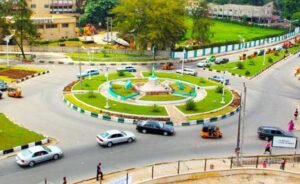
Owerri, the bustling capital of Imo State, is a city on the rise. While it may not be known as a heavy industry like some other Igbo economic powerhouses, Owerri is experiencing exciting growth in different key sectors.
Think about It, Owerri is a hub for the service sector. This sector includes a wide range of jobs, from government administration and banking to healthcare and hospitality.
As the capital city, Owerri houses many important government offices to attract a significant number of workers. Banks and other financial institutions are also setting up shop in Owerri, recognizing its growing importance.
The city also boasts a range of hospitals and clinics, providing quality healthcare services. And don’t forget the hotels and restaurants that cater to visitors and residents.
All of these service-based businesses create jobs and contribute to the overall economic health of Owerri. Educational institutions are playing a major role in Owerri’s development.
The city is home to several universities and colleges. These students bring energy and spending to Owerri. Students need places to live, eat, and have fun, which creates a demand for housing, restaurants, and entertainment options.
This increased demand benefits local businesses and contributes to the city’s economic growth. Also, the presence of these educational institutions encourages a culture of learning and innovation, which can lead to the development of new businesses and ideas in the future.
Then again, commerce is another important pillar of Owerri’s economy. The city has a vibrant network of markets and shops.
Even If you’re looking for everyday essentials or unique handcrafted items, you’re sure to find them in Owerri’s bustling marketplaces.
These markets provide a platform for local traders and entrepreneurs to sell their wares, creating jobs and income for the community. The commercial activity in Owerri not only benefits residents but also attracts visitors from surrounding areas.
5. Awka
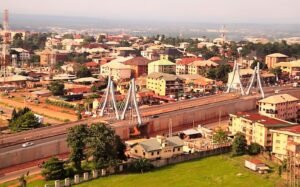
Awka city is transforming into a major commercial center in Igbo land, and there’s a key reason behind this rapid growth: Innoson Vehicles.
Innoson Vehicles is a highly successful Nigerian automaker with its headquarters located in Awka. The Innoson factory is a massive operation, creating all sorts of vehicles like cars, SUVs, and even trucks.
This company isn’t just churning out vehicles; it’s also creating positive change for Awka. How exactly is Innoson Vehicles driving Awka’s growth In you ask me?
First, the factory creates a huge number of jobs for people in Awka. People have money to spend, which benefits local businesses and the overall economy.
Innoson Vehicles is also attracting investment to Awka. Investors see the potential of this growing city and are eager to be a part of its success.
These investment helps to fund new businesses, infrastructure improvements, and other projects that benefit the entire community.
Think of it like this: when a successful company sets up a shop in a city, other businesses often follow suit, bringing more money and opportunities to the area.
In addition, Innoson Vehicles is putting Awka on the map as a center of innovation and manufacturing excellence. No longer is Awka just another city on the road. It’s now known for producing high-quality vehicles, made by talented Nigerians.
6. Abakaliki

Abakaliki is one of the top 10 cities with the highest economic activity In Igboland. Once known primarily as a quiet agricultural center, Abakaliki is gradually changing into a developing economic hub in Igbo land.
One fundamental driver of Abakaliki’s growth is agriculture, particularly rice production. The fertile land surrounding Abakaliki is perfect for growing rice, and the city is quickly becoming a major producer of this staple grain.
This boom in rice production is attracting investment in processing facilities, which means the paddy rice grown by local farmers can be transformed into delicious, packaged rice that can be sold throughout Nigeria.
Abakaliki’s agricultural strength is creating jobs for farmers, mill workers, and people in all sorts of related industries.
Commerce is another area where Abakaliki is experiencing exciting growth. The city’s central location, at the crossroads of several important trade routes, makes it a natural center for commerce.
In addition, improved infrastructure, like better roads, is making it easier for traders to get their goods to and from Abakaliki.
This is leading to a rise in trade activity, with more and more businesses setting up shop in the city. Markets are bustling, and the variety of goods available is growing every day.
Abakaliki is also rich in mineral resources, which presents a great opportunity for future development. These resources haven’t yet been fully explored, but they have the potential to attract even more investment and create new industries in Abakaliki.
7. Umuahia
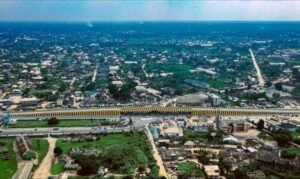
Umuahia is more than just a seat of government. This city is promoting a vibrant economy with a focus on innovative new sectors.
A strong service sector is the backbone of Umuahia’s economy. This sector contains a wide range of jobs, from government administration and education to healthcare and hospitality.
Umuahia houses many important government offices, providing stable employment for a considerable portion of the population.
Universities and colleges in Umuahia attract students from across the region, and these students contribute to the local economy through their spending on housing, food, and entertainment.
Hospitals and clinics provide quality healthcare services, creating jobs for medical professionals and supporting the overall well-being of the community.
The service sector lays a solid foundation for Umuahia’s economic growth. Above the traditional service sector, Umuahia is undergoing a surge in the tech industry.
8. Orlu
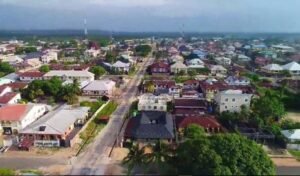
Orlu in Imo State, might not be as widely known as some of the other economic giants of Igbo land, but it’s steadily growing in importance.
This city’s economic strength is rooted in its fertile lands and its dedication to agriculture. Orlu is particularly well-known for its palm production.
Palm trees stretch across the landscape surrounding the city, and Orlu plays an important part in processing palm fruits into a variety of products.
Palm oil is one of the most important products derived from Orlu’s palm groves. This oil is used in countless dishes throughout Nigeria, and Orlu’s production helps to meet the national demand.
In addition to palm oil, Orlu also processes palm fruits into kernels, which can be pressed for palm kernel oil, another valuable product used in cooking and cosmetics.
Also, the city has a thriving agricultural sector that extends beyond palm trees. Farmers cultivate a variety of crops in Orlu’s rich soil, including vegetables, yams, and cassava.
These crops not only feed the local population but also contribute to Orlu’s role as a supplier of fresh produce to surrounding areas.
Markets in Orlu are always bustling with activity, as farmers sell their fresh crops and residents stock up on healthy ingredients.
The agricultural industry in Orlu is more than just farming. It also involves businesses that support farmers and contribute to the overall economic growth.
For example, Orlu has facilities for storing and processing agricultural products, which helps to prevent spoilage and ensures that food reaches consumers in good condition. Transportation companies play a part in getting Orlu’s agricultural products to market.
9. Okigwe
Okigwe, another major city in Imo State, plays an important part in Igbo land’s agricultural sector. This city is particularly known for its cassava processing facilities.
Cassava, a starchy root vegetable, is a staple food throughout Nigeria, and Okigwe takes part in converting cassava into various usable products.
One of the most common products derived from cassava in Okigwe is garri. Garri is a popular Nigerian food made from fermented, grated cassava.
It’s a versatile ingredient that can be eaten in many ways, boiled, fried, or even eaten as a snack. Okigwe’s high-quality garri production helps meet the national demand for this staple food.
Aside from garri, Okigwe’s processing facilities also create other products from cassava, such as fufu flour and tapioca.
Fufu flour is another popular ingredient used in Nigerian cuisine, often pounded into a dough and served with soups or stews.
10. Nsukka
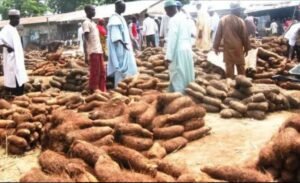
Nsukka thrives as a center for agricultural trade. Lush lands surrounding the city burst with crops like yams, cassava, corn, taro, pigeon peas, and palm oil.
Farmers from the region bring their bountiful harvests to Nsukka’s markets to create an essential hub for buying and selling agricultural goods.
This activity benefits local farmers and ensures a steady supply of fresh produce throughout the region. Also, Nsukka has a rich tradition of weaving, a craft passed down through generations. Skilled artisans transform basic threads into beautiful textiles.

